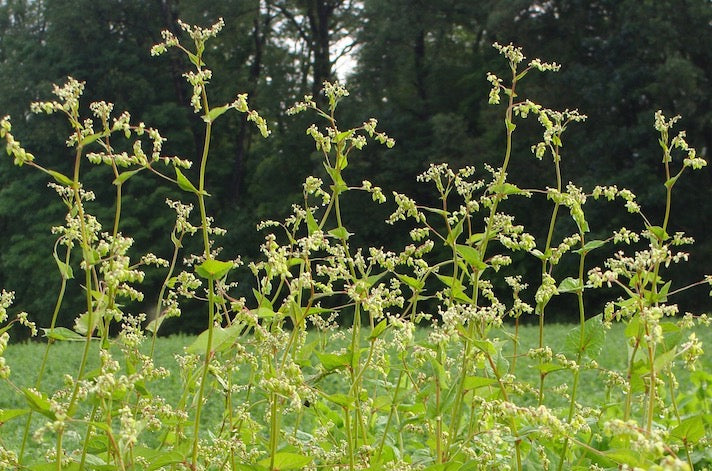BAINBRIDGE ISLAND, Washington
December 2, 2020
Himalayan Tartary buckwheat (Fagopyrum tataricum) has not been widely grown in the United States for many decades. While it is a staple crop in parts of Asia and elsewhere — often milled into a flour product or dried and used as tea — the plant all but disappeared from American agriculture during the 20th century as the food supply became more industrialized.
In recent years, a small group of researchers around the world has taken an interest in the plant, which differs significantly from common buckwheat (Fagopyrum esculentum). Jeffrey Bland, Ph.D., a nutritional biochemist and a well-known expert in the natural products industry, is one of them. “This is a plant with a 2500-year history as a human food,” says Bland. “It has been used for its health benefits in traditional cultures for centuries. Thanks to modern technology and analytical techniques, now we are beginning to understand why. The immune supportive nutrient profile of this plant is extraordinary.”
Why haven’t you heard about this superfood before? Bland has a theory: taste. Himalayan Tartary buckwheat can have a bitter flavor. In the US, sweet dominates the food chain — a fact that has influenced the American palate and the companies that cater to it. But Bland believes the time is right for a shift. He feels that US consumers are developing interest in their wellness, and are looking for science-backed food and supplement solutions that get to the root causes of their health concerns.
“Bitter is better,” he says. “In the case of Himalayan Tartary buckwheat, the bitter taste is an indicator of the phytonutrients contained in the plant. This high phytonutrient concentration allowed the plant to be successful over the millennia in incredibly harsh environments. It’s a stunning orchestration of nature’s genius—rutin, quercetin, hesperidin, luteolin, diosmin, 2-hydroxybenzylamine. Individually, these molecules can play important roles in human health. Together, the synergistic possibilities are eye-opening. Our clinical studies team has just completed its first study looking at these effects, and I look forward to seeing what future trials will reveal.”
Bland founded Big Bold Health® in 2018. He has partnered with other noted natural products innovators, as well as respected scientists such as Naji Abumrad, MD, of Vanderbilt University. Patented 2-hydroxybenzylamine—also referred to as 2-HOBA or Hobamine™—can be found in Big Bold Health® products. This molecule is being studied for its inflammation-modulating effects by Dr. Abumrad’s team. Bland is also building a US-based grower network of small farms to scale up domestic production of organically certified Himalayan Tartary buckwheat. A successful first harvest has produced more than 100,000 lbs. of seed for Big Bold Health’s initiatives, which include both dietary supplements and food products.
Learn more on this website and at bigboldhealth.com.
ABOUT BIG BOLD HEALTH®
Big Bold Health® is on a mission to improve global health through immunity. From revitalizing lost superfoods to crafting the highest-quality omega-3 products on Earth, Big Bold Health® draws from the best immunity interventions nature can offer. And with unparalleled dedication to science, sustainability, and quality, Big Bold Health® is creating a coIMMUNITY that supports enduring wellness for people, plants, and planet. Big Bold Health® products can be found online on Amazon and through select health providers across America and Canada.
SYNDICATED LINK


